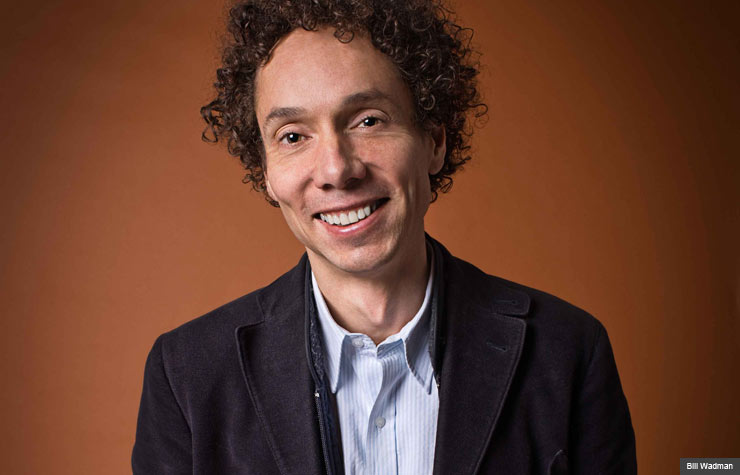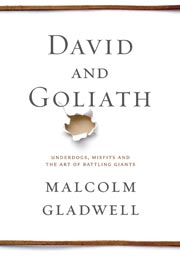AARP Hearing Center


Malcolm Gladwell, author of the best-selling Blink, Outliers and The Tipping Point, makes some typically counterintuitive — and controversial — claims in his new David and Goliath: Underdogs, Misfits and the Art of Battling Giants.
Take dyslexia: Far from being a learning disability, it might just be a "desirable difficulty" that teaches those with the disorder to deal with failure — and thereby achieve career success.
Losing a parent in childhood is a traumatic burden, no question — but might it also instill a resilience to life's shocks that makes you tougher than your peers?
And could it be possible there's "a point at which money and resources stop making our lives better and start making them worse"?
We asked the man who's made a career of rejecting conventional wisdom to explain.


Thanks to your four previous books, phrases like "the tipping point" and "10,000 hours" [to master any skill] have become part of the cultural conversation. What will readers take away from David and Goliath?
I have no idea! The takeaways from the previous books all surprised me. It never occurred to me that the 10,000 hours thing [from Outliers: The Story of Success] would be something people remember. I put that in as a kind of throwaway little moment; I never thought anything would come of it. That experience convinced me you can't predict how people will respond to your work.
But what would you like them to take away?
I'd just like people to have more respect for the hidden virtues of certain kinds of adversity. And I'd like people with power to be a little more cautious in how they use it.
You say "the act of facing overwhelming odds produces greatness and beauty." Aren't most underdogs just trying to survive?
Yeah, but sometimes in merely trying to survive, greater things happen. Out of a child's struggle to overcome an unspeakable upbringing, for example, often comes the strength and the tools to do something transcendent.
You say "the right question" for us to ask is whether "we as a society need people who have emerged from some kind of trauma — and the answer is that we plainly do. This is not a pleasant fact to contemplate."
I'm saying that hardship in a certain sense is inevitable. People will always be born with disabilities of one kind or another; there will always be minorities alongside majorities. These things are a constant feature of our world. It makes sense to examine them and say, "What comes of them?"
Your family moved from London, England, to Ontario; then you moved to the U.S. Did all that relocating make you feel like an outsider or underdog?
Not an underdog. An outsider, yes. I was interested in writing about underdogs because they've had such a different experience than I have. I have not had a difficult life at all — I've had a life of real privilege. I mean, to grow up in middle-class Canada and then immigrate to the United States: Compared to 99.99 percent of humanity, that's a pretty good deal! So I don't make any claim to be anything like the people I write about in this book.
Vivek Ranadivé, the basketball coach you profile from Mumbai, took his daughter's California middle school team to the national championship specifically because he knew nothing about the game. Yet his very effective methods — he taught his girls to beat the deadlines for the inbounds pass and moving the ball past midcourt — never really caught on among other coaches. What makes conventional wisdom so persistent?
Underdog strategies are difficult. They don't come with any promise of victory; they simply improve your odds of doing well. Most of us would rather do what's comfortable than do what maximizes our chances of winning. It's a sad truth about human nature that it takes a special kind of person to follow this road.



































































More on Entertainment
Stephen King's 'Doctor Sleep' Revisits 'The Shining' — Nearly 30 Years Later
Read an excerpt and learn what became of little Danny Torrance.The Little Mermaid Is 50+ (Her Voice, That Is)
Jodi Benson, the actress behind Disney’s Ariel, continues to make a splash.